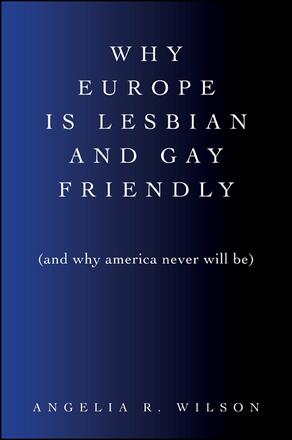
Why Europe Is Lesbian and Gay Friendly (and Why America Never Will Be)
Alternative formats available from:
Offers an analysis of the political economy of care in order to explain how lesbian and gay citizens in Europe benefit from equality more than those in the United States.
Description
Why Europe Is Lesbian and Gay Friendly (and Why America Never Will Be) examines the differences in politics, policy, and culture in leading Western democracies and offers an explanation as to why lesbian and gay citizens in Europe reap more benefits of equality. This analysis of the political economy of care calls attention to the ways in which care is negotiated by various investors (the state, families, individuals, and the faith-based voluntary sector) and the power dynamics of this negotiation.
Historically, Christian churches have been leading primary investors in care, providing a direct safety net for children and the elderly. Despite European secularization, the involvement of the Christian church elites in both the provision of service and the setting of the values frame for welfare cannot be underestimated. The historical involvement of Christian churches is unique in each country, but one common factor is the normative interpretation of "the family." The role of Christian values—from left-leaning social justice, Reformed Protestant individualism, or social conservatism—in relation to the political economy of care gives a distinctive flavor to questions about under what circumstances policymakers are compelled, or not, to expand policies to include lesbian and gay citizens.
Angelia R. Wilson is Professor of Politics at the University of Manchester, United Kingdom. She is the author of Below the Belt: Sexuality, Religion and the American South.
Reviews
"In her lively and engaging style, [Wilson] offers the reader a wonderfully clear and compelling account of the differences in politics, policy and culture that provides answers to the book title's question. This is an important book, offering us a better grasp of the conceptual complexities and political challenges that hang upon the topic of lesbian and gay inclusion in different nation states and why our understanding of this matters." — Times Higher Education
"Why is Europe lesbian and gay friendly—and why will the US never be? Angelia R. Wilson, in this admirable book, finds answers to this question in unexpected places: the heritage of state-church relations, Europe's single market policies, the crisis of care. By casting her intellectual net that wide, she offers much more than an answer to her book title's question, and the reader gains nothing less than a much better understanding of the political and moral complexity of social citizenship in Europe and America." — Philip Manow, coeditor of Religion, Class Coalitions, and Welfare States
"The good news: Wilson's innovative argument is persuasive—'gay and lesbian friendly' policies have to be understood in the context of the political economy of care. In this way, she creatively adds to such usual suspects, as religiosity, in comparing state policies about sexual inclusion. The bad news: for all the news about gay marriage, the USA still does not come out well." — Joan C. Tronto, coeditor of Women Transforming Politics: An Alternative Reader
"Angelia R. Wilson's comparative study of policies affecting the well-being of lesbian and gay citizens in Europe and the United States is thoroughly grounded in the literature of political science. On the question of why European social policy is more supportive and inclusive of lesbians and gay men than is true of the United States, she marshals primarily qualitative evidence which is analyzed from several theoretical angles to reach her conclusion. The perspectives developed in this work will contribute to shaping the course of future debates over the question of how best to advance the rights and well-being of all citizens." — Charles W. Gossett, California State University, Sacramento